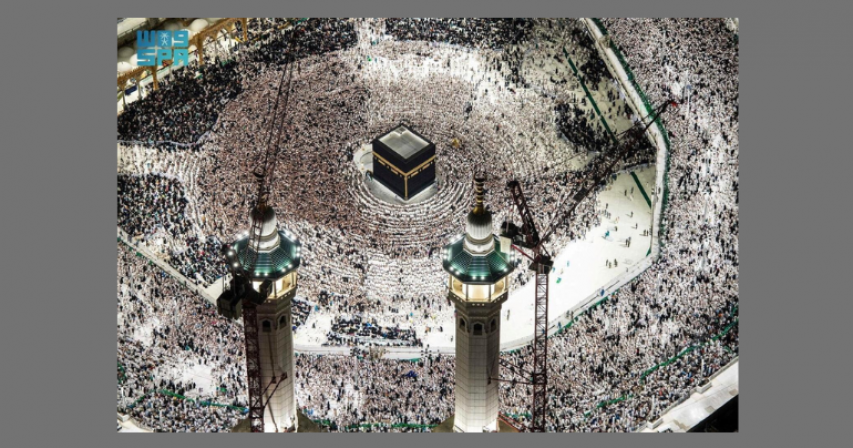Man attempts suicide at Makkah’s Grand Mosque

The tranquility and sanctity of Masjid Al Haram in Makkah, the holiest site in Islam, were momentarily disrupted when a man attempted suicide by jumping from its upper floors. The incident, which occurred on a Tuesday morning, prompted swift action from the security authority in the Makkah region.
Upon witnessing the distressing event, authorities immediately sprang into action, swiftly transporting the individual to a nearby hospital to receive the necessary medical attention. The man's condition remains undisclosed, underscoring the sensitivity of the situation.
In response to the incident, the Special Force for the Security of the Grand Mosque launched a thorough investigation to ascertain the circumstances surrounding the attempted suicide. However, the identity of the individual involved has not been disclosed, as the investigation is still ongoing.
Incidents of this nature are rare but not unprecedented in the history of Masjid Al Haram. In 2017, a Saudi man attempted self-immolation in front of the Kaaba, the sacred cubic structure at the center of the mosque complex, only to be thwarted by vigilant security forces. Subsequent years also witnessed a handful of suicide-related incidents, including individuals jumping from the heights of the mosque.
The occurrence of such incidents underscores the immense emotional turmoil experienced by individuals, even within the confines of a revered religious site. While Masjid Al Haram is a place of solace and spiritual rejuvenation for millions of Muslims worldwide, it also serves as a microcosm of the complex human experience, where individuals grapple with personal challenges and crises.
Despite the sacredness of the mosque, it is not immune to the mental health struggles that afflict individuals irrespective of their faith or background. As such, it is imperative for authorities to remain vigilant and proactive in addressing mental health issues within the community, providing support and resources to those in need.
Additionally, incidents like these prompt broader societal reflections on mental health awareness and support mechanisms. They serve as a sobering reminder of the importance of destigmatizing mental illness and fostering open dialogue about mental health issues within religious and cultural contexts.
In the aftermath of such incidents, communities often come together to reaffirm their commitment to compassion, empathy, and support for those in distress. Religious leaders and community members alike play a crucial role in providing spiritual guidance and emotional support to individuals facing mental health challenges.
Ultimately, while the attempted suicide at Masjid Al Haram is a sobering reminder of the fragility of the human condition, it also serves as a call to action for greater compassion, understanding, and support for individuals grappling with mental health issues in all walks of life. By fostering a culture of empathy and solidarity, communities can work towards creating environments where individuals feel safe, supported, and valued.
By: Sahiba Suri





Comments